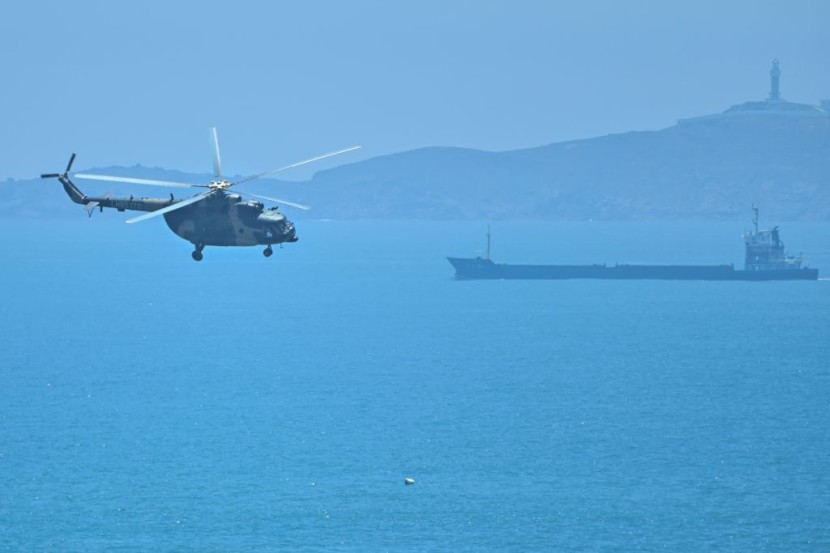
Philippine officials have reported that the United States, Japan, and Australia are poised to launch joint military drills in the disputed South China Sea this week.
The three nations are taking this coordinated action in response to recent Chinese aggression in the region, aiming to demonstrate their commitment to upholding the rule of law, according to Sun Star.
US-Japan-Australia Joint Military Drills in South China Sea
The joint drills involve three aircraft and helicopter carriers sailing together, showcasing a united front and engaging in collaborative exercises. Two Filipino security officials, speaking on the condition of anonymity due to confidentiality, disclosed the forthcoming joint military maneuvers to the Associated Press.
The move is a direct response to the recent show of force by China in the contested waters of the South China Sea. Following the offshore drills, commanders from the three nations will convene with their Filipino counterparts in Manila.
The deployment of assets for the joint drills includes the US aircraft carrier USS America, Japan's formidable helicopter carrier JS Izumo, and Australia's HMAS Canberra, which is also equipped with helicopters.
The joint exercise had been planned for several months, and it demonstrates a collective effort to assert the significance of international law and maritime stability in the region.
While the Philippines will not participate in this week's drills due to military logistical constraints, it remains open to future participation. The decision underscores the urgency for improved regional cooperation and preparedness to address escalating tensions in the South China Sea.
A recent joint statement from the White House, involving the US, Japan, and South Korea, underscored their collective condemnation of China's aggressive behavior and unlawful maritime claims in the South China Sea.
The statement expressed strong opposition to unilateral attempts to change the status quo in the Indo-Pacific waters. It reaffirmed their commitment to international law and freedom of navigation as enshrined in the UN Convention on the Law of the Sea (UNCLOS).
The joint drills come on the heels of a recent incident involving Chinese coast guard ships and militia vessels obstructing two Philippine navy-chartered civilian boats that were delivering supplies to Philippine forces stationed at the Second Thomas Shoal on August 5, as per Fox News.
Tensions Escalate as China Deploys Water Cannons
Amid the tense standoff, China's coast guard used water cannons against the Philippine vessels. The incident sparked international concern and garnered support from the United States, Japan, and Australia, all of whom expressed solidarity with the Philippines.
The Chinese coast guard justified its actions by claiming that the vessels had strayed without permission into the disputed area. The Philippines' armed forces reiterated their commitment to upholding the rule of law and opposing threats and coercion.
In light of the incident, the Philippines is planning another resupply mission to the Second Thomas Shoal, escorted by its coast guard and potentially supported by US assets.
This renewed attempt to deliver supplies signifies the nation's determination to assert its sovereignty and maritime rights. The clash highlights the ongoing tensions in the South China Sea and underscores the complexity of regional dynamics.
The Philippines' pursuit of its territorial claims based on international arbitration has consistently met resistance from China. Despite an international arbitration panel's ruling in 2016 that Second Thomas Shoal falls within the Philippine continental shelf and exclusive economic zone, China has rejected the ruling and continues to assert its own claims.
The intensification of military clashes in the region raises concerns about the potential for a larger confrontation. The presence of US assets and the invocation of mutual defense treaties further complicate the situation. As nationalist sentiments grow in both the Philippines and China, the potential for escalation remains a pressing concern.
The joint military drills by the United States, Japan, and Australia signal their commitment to maintaining stability in the South China Sea and supporting international norms.
However, as tensions persist and territorial disputes continue, the delicate balance in the region remains at risk, underscoring the need for diplomatic efforts to prevent further escalation, South China Morning Post reported.








